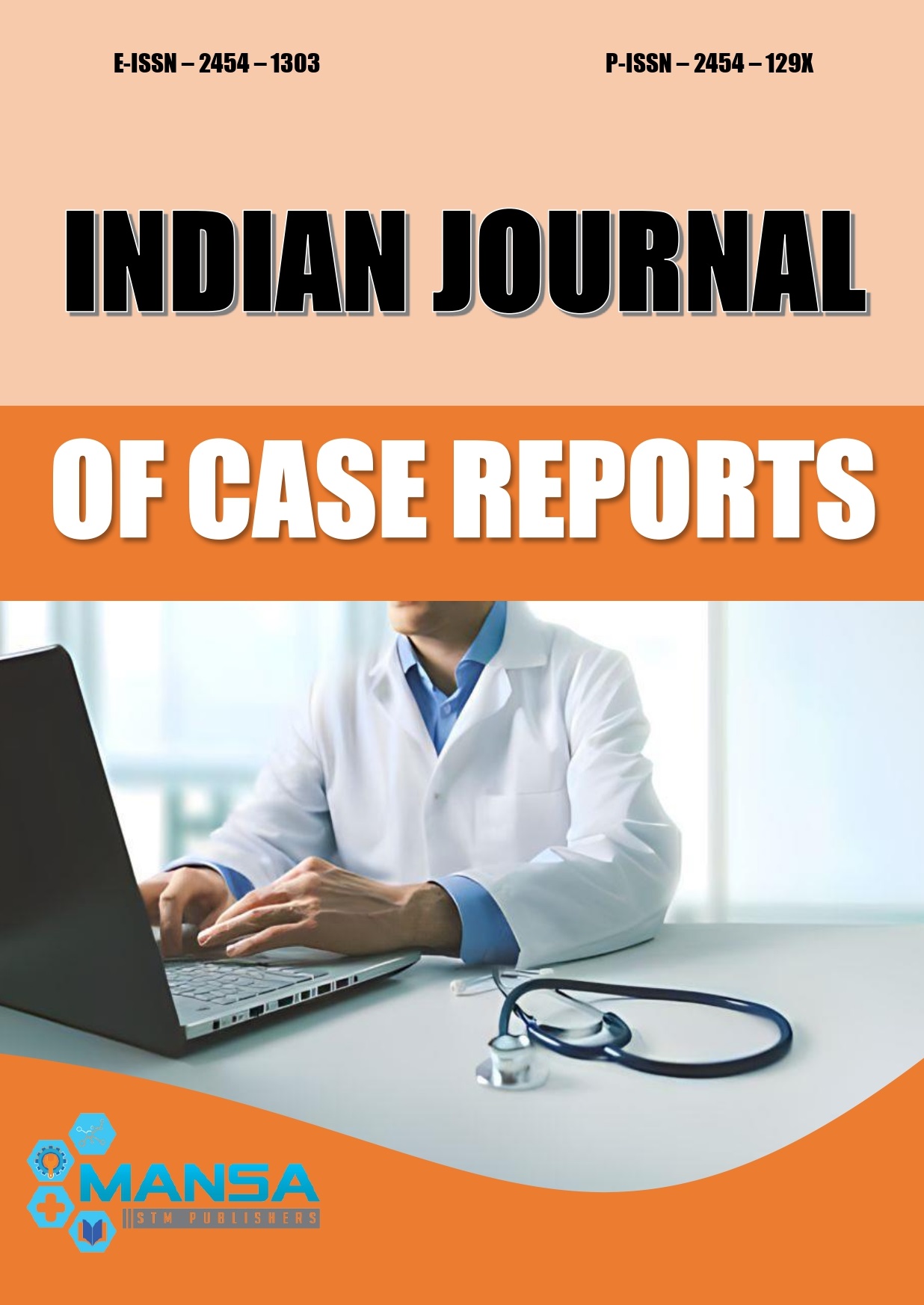Clinical and radiological features of orbito-temporal neurofibromatosis
DOI:
https://doi.org/10.32677/IJCR.2021.v07.i06.016Keywords:
Optic pathway glioma (OPG), Plexiform neurofibroma, Proptosis, Sphenoid wing dysplasiaAbstract
Neurofibromatosis- 1 (NF- 1) is an autosomal dominant condition belonging to the well-known group of neurocutaneous syndromes. It affects 1 in 3500 persons. It is caused by a mutation in the neurofibromin gene localized to chromosome 17q11.2. which codes for a protein involved in the normal cell cycle regulation. Therefore NF-1 gene mutations predispose the individual to various benign and malignant tumors. The diagnosis of NF-1 remains largely clinical, given its characteristic lesions. Here we describe one such case with hallmark lesions of NF-1. A 12-year-old boy presented with a slow-growing and progressive right upper lid mass causing severe drooping, vision impairment and facial disfiguration. On detailed ophthalmic examination he was found to have severe ptosis, Lisch nodules and keratoconus. A systemic examination revealed café au lait spots and axillary freckling. Radiological imaging showed sphenoid wing dysplasia, encephalocele and optic pathway glioma. The patient was taken up for debulking surgery and a referral to the neurosurgery department was sent. He has been on follow up for last 12 months. This case first presented to an ophthalmology clinic and thus, as an ophthalmologist, keeping in mind the associated intraorbital and intracranial pathology can be life-saving. A multidisciplinary approach is needed in the management of such severe cases of NF-1.
Downloads
Downloads
Published
Issue
Section
License

This work is licensed under a Creative Commons Attribution-NonCommercial-NoDerivatives 4.0 International License.

